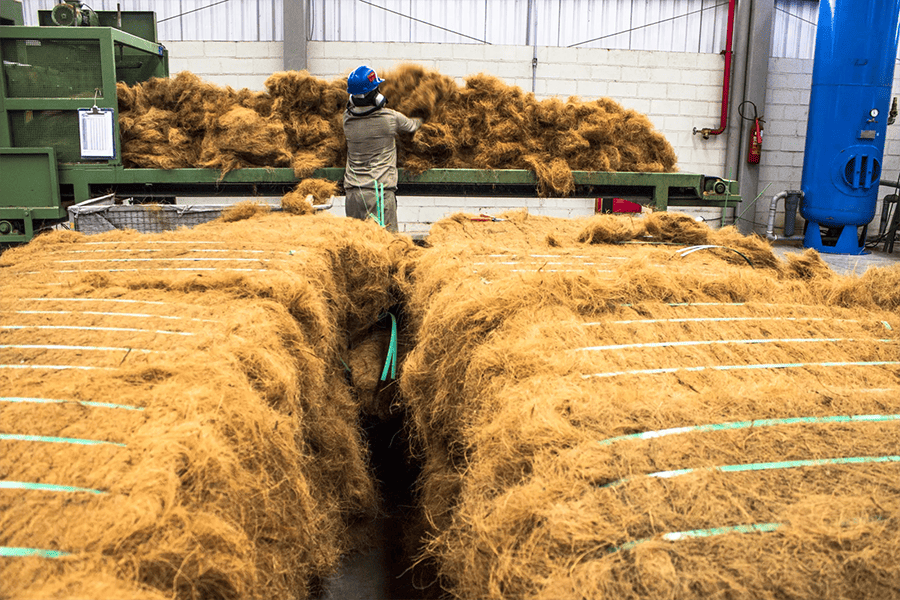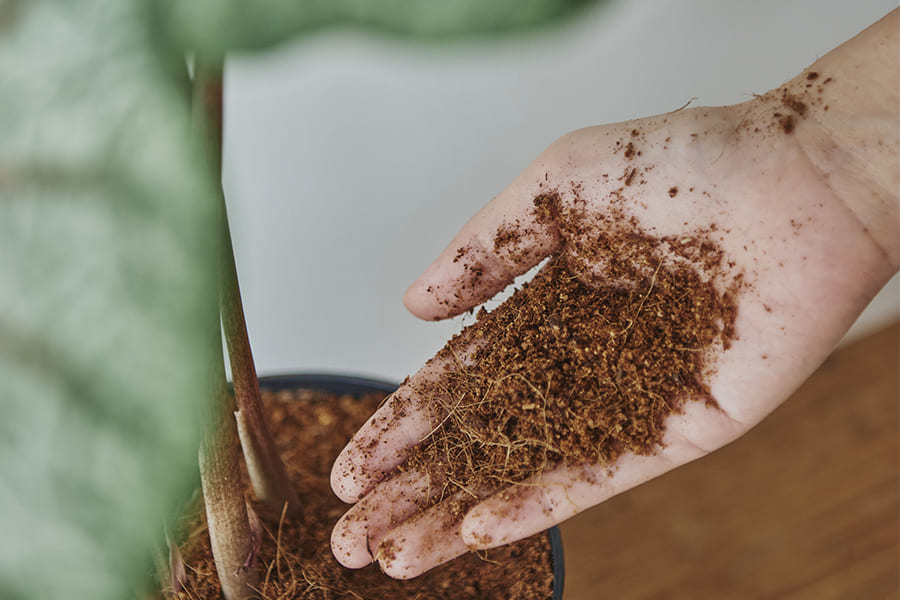BLOG POSTS & ARTICLES
Sustainable Garden Waste Composting with Coco Coir

Compost, the hidden hero of gardening, has the power to transform your green space into a thriving oasis. But the true magic unfolds when you take charge and create your own compost. It's not merely a matter of waste management; it represents a journey towards self-sufficiency and the cultivation of a healthier garden.
In this blog, we will introduce you to an eco-friendly ally – coco coir, and the wonders of this material and how it can revolutionize your approach to composting, waste management, and the overall well-being of your garden. Get ready to embark on a journey towards greener, more sustainable, and healthier gardening practices, where you'll discover the many benefits of incorporating coco coir into your composting endeavors.
What is Coco Coir?
Coco coir, often referred to as "coir," is a natural fiber derived from the husk of coconuts. It's a versatile, eco-friendly material with a wide range of applications, including gardening. It is an excellent option for composting due to its ability to provide the essential carbon component. It helps create a balanced and fertile compost pile, making it a top choice for environmentally conscious gardeners seeking efficient waste management and improved soil health.
Composting
Composting is a sustainable gardening practice that transforms organic waste into a nutrient-rich soil conditioner. It not only reduces landfill waste but also promotes eco-friendly gardening. Successful composting relies on three main components: carbon-rich materials (such as coco coir), nitrogen-rich materials (like kitchen scraps), and proper moisture. These elements collaborate to fuel the decomposition process.
Maintaining the right balance between carbon and nitrogen is crucial, as carbon provides structure and prevents acidity, while nitrogen supplies essential nutrients. Striking this balance ensures efficient composting and helps you avoid common pitfalls.
Carbon & Coco coir
Carbon plays a fundamental role in the composting process, serving as the primary energy source for beneficial microorganisms. It provides essential structure to the compost, helps balance the nitrogen content, and prevents the compost from becoming overly acidic.
Coco coir, with its fibrous texture and high carbon content, is an excellent carbon source and a valuable addition to the compost pile. It enhances the decomposition process, aids in moisture retention, and ensures proper aeration within the compost pile.
To achieve the optimal compost mix, it's crucial to strike a balance between carbon-rich materials like coco coir and nitrogen-rich materials such as kitchen scraps or green waste. This balance is key to fostering efficient decomposition and creating nutrient-rich compost for your garden.
Coco Coir and compost moisture management
Adequate moisture is a crucial factor for successful composting, as it creates the necessary environment for microorganisms to efficiently break down organic matter, thus speeding up decomposition. Coco coir stands out for its ability to both absorb and retain moisture effectively. It acts as a natural sponge, helping to ensure that the compost pile remains adequately hydrated.
To maintain the ideal moisture level and prevent the compost from becoming either too dry or overly wet, it's important to monitor its moisture content. The goal is to achieve a moist consistency without making it soggy. Striking this careful balance is essential as it promotes efficient decomposition while minimizing issues such as foul odors.
By paying attention to moisture levels and utilizing materials like coco coir, you can create a composting environment that encourages the rapid and effective breakdown of organic matter.
Soil Improvement
Enhancing Soil Quality: Composting with coco coir enriches soil quality by introducing valuable organic matter and nutrients. This, in turn, results in healthier and more productive soil, which is essential for successful gardening.
Improved Drainage and Aeration: Coco coir is an excellent choice for improving soil drainage and aeration, especially in heavy clay soils. It prevents compaction, creating space for plant roots to access oxygen and water more easily. This promotes healthier root development.
Increased Moisture Retention: The moisture-retention properties of coco coir help the soil retain water, ensuring a more consistent water supply for plants. This is particularly beneficial during dry periods when maintaining adequate moisture is crucial for plant health.
Enriched Fertility: Composting with coco coir introduces essential nutrients and beneficial microorganisms into the soil. This enriched fertility supports robust plant growth, leading to more vibrant and productive gardens. Overall, it contributes to the long-term health and vitality of your plants and soil.
Environmental Impact
Composting with coco coir represents an eco-conscious approach to waste disposal with several notable benefits:
Waste Diversion: Composting with coco coir effectively diverts organic garden waste from ending up in landfills, where it would otherwise decompose and produce harmful greenhouse gases.
Reduced Emissions: By adopting this approach, you contribute to lowering landfill-related emissions, which can have a positive impact on the environment. Decomposing organic matter in landfills releases methane, a potent greenhouse gas, into the atmosphere. Composting with coco coir mitigates these emissions.
Landfill Conservation: Additionally, this method conserves precious landfill space, as the need for landfill disposal of organic waste is reduced. This helps extend the lifespan of existing landfills and reduces the demand for creating new ones, which often face community resistance and environmental challenges.
Tips for Composting with Coco Coir
Prep Your Waste: Shred or chop your garden waste before adding it to the compost pile. This increases the surface area and speeds up decomposition, making your composting process more efficient.
Balanced Ratio: Mix coco coir with your garden waste in a 1:1 ratio. This ensures an ideal balance of carbon (from the coco coir) and nitrogen (from the garden waste), fostering effective decomposition.
Moisture Management: Maintain the right moisture level in your compost pile. It should be consistently damp, not overly wet. Coco coir helps with moisture retention, but be mindful not to make the pile soggy.
Aeration is Key: Regularly turn the compost pile to introduce oxygen and improve aeration. Being well-aerated speeds up decomposition and reduces the risk of foul odors or anaerobic conditions.
Conclusion
In conclusion, incorporating coco coir into your composting efforts can be a game-changer for your garden. It provides essential carbon, helps manage moisture, and promotes eco-friendly waste management. The result? Healthier soil, better plant growth, and a positive impact on the environment. So, let's get composting with coco coir and make our gardens greener and more sustainable!











__(3).jpg)









